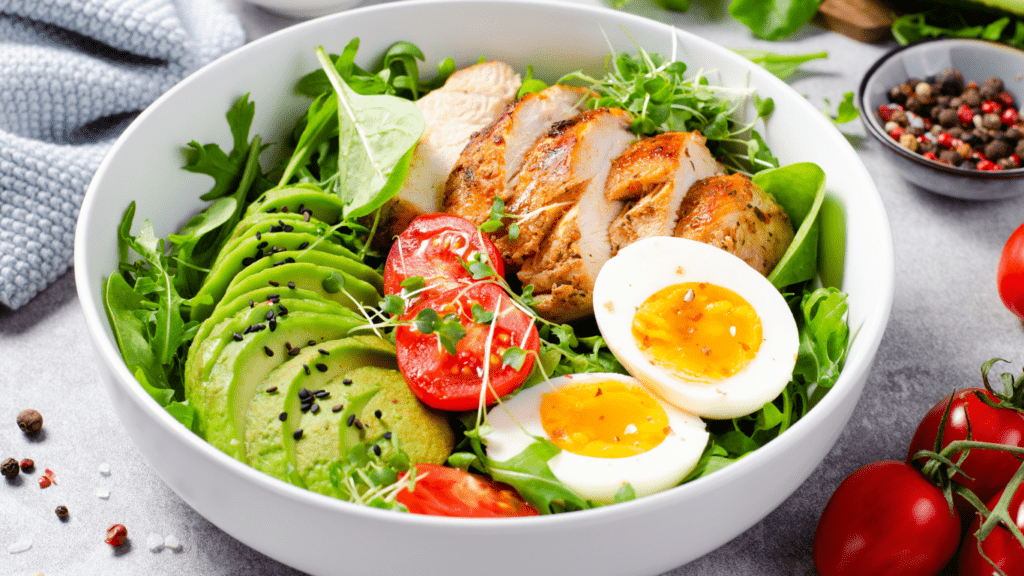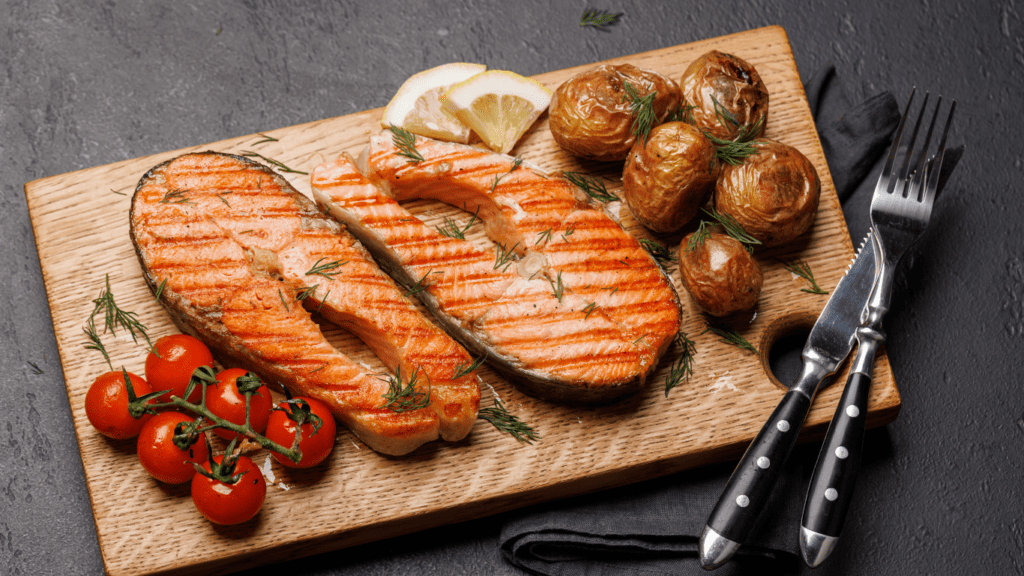Importance Of Sports Nutrition
Sports nutrition is crucial for athletes aiming to optimize their performance. Proper nutrition provides the energy needed for intense physical activity, aiding in endurance and preventing fatigue. Balanced meals rich in carbohydrates, proteins, and fats ensure that the body has adequate fuel. For instance, consuming complex carbohydrates like whole grains and fruits helps maintain energy levels during games.
Adequate hydration, another key aspect, helps regulate body temperature and prevent dehydration. Dehydration can lead to decreased performance and increased risk of injury. Drinking water or sports drinks before, during, and after games ensures consistent hydration.
Recovery post-game is equally important. Consuming protein-rich foods like lean meats and legumes supports muscle repair and growth. Pairing proteins with carbohydrates also replenishes glycogen stores, aiding in quicker recovery.
Vitamins and minerals play vital roles in bodily functions. For example, calcium and vitamin D are essential for bone health, while iron supports oxygen transport in the blood. Including a variety of colorful vegetables and dairy products in the diet ensures sufficient intake of these nutrients.
Well-planned sports nutrition benefits athletes by enhancing energy levels, preventing injuries, supporting recovery, and improving overall performance.
Pre-Game Nutrition
Understanding what to eat before a game is crucial to maximizing performance. Pre-game nutrition focuses on providing the right fuel to enhance energy levels and stamina.
Ideal Pre-Game Meals
Athletes should consume balanced meals before a game to ensure optimal performance. Ideal pre-game meals include a mix of carbohydrates, proteins, and fats. Carbohydrates, like whole grains and fruits, offer quick energy. Examples include:
- Whole-grain pasta with tomato sauce
- Brown rice with vegetables
- Oatmeal with bananas
Proteins, such as lean meats and dairy, support muscle function. Examples include:
- Grilled chicken breast
- Greek yogurt
- Boiled eggs
Fats, like avocados and nuts, provide long-lasting energy. Examples include:
- Avocado toast
- Almonds
- Nut butter on whole-grain bread
Timing Of Pre-Game Meals
Athletes should eat their main meal about 3-4 hours before the game. This window allows for proper digestion and energy availability. Consuming lighter snacks 1-2 hours before the game can help maintain energy levels. Examples of such snacks include:
- A banana with peanut butter
- A small smoothie with fruits and yogurt
- Trail mix with nuts and dried fruits
Staying hydrated is also essential, so drinking water throughout this period is necessary to avoid dehydration and maintain peak performance.
Nutrition During The Game
During the game, it’s essential to maintain energy levels and stay hydrated to ensure peak performance and prevent fatigue.
Hydration Tips
Staying hydrated is crucial during the game. I recommend drinking small amounts of water at regular intervals, about every 15-20 minutes.
For activities lasting longer than 60 minutes, consider sports drinks containing electrolytes, which help replenish sodium and potassium lost through sweat.
Avoid sugary or caffeinated beverages, as they can lead to dehydration. Monitor urine color; pale yellow indicates proper hydration, while dark yellow signals a need for more fluids.
Energy-Boosting Snacks
Keeping energy levels high during the game is vital. Opt for easily digestible snacks, such as bananas, which provide quick-release carbohydrates and potassium.
Energy gels or chews are also effective, offering a concentrated source of carbohydrates. For longer games, clusters or trail mix containing nuts and dried fruits provide both immediate and sustained energy. Ensure snacks are consumed in small portions to avoid digestive discomfort.
Post-Game Nutrition
Proper post-game nutrition accelerates recovery, restoring energy levels and repairing muscle tissues. After intense activity, focus on a balanced intake of proteins, carbohydrates, and fluids.
Essential Nutrients For Recovery

After exertion, the body requires specific nutrients for effective recovery:
- Proteins: Promote muscle repair. Examples: chicken, fish, Greek yogurt.
- Carbohydrates: Replenish glycogen stores. Examples: sweet potatoes, quinoa, whole-grain bread.
- Fluids: Restore hydration levels. Examples: water, electrolyte drinks, coconut water.
- Vitamins and Minerals: Support overall recovery processes. Examples: leafy greens, berries, nuts.
Sample Post-Game Meals
Balanced meals include a mix of essential nutrients to enhance recovery:
- Grilled Chicken and Quinoa: Provides lean protein and complex carbs.
- Salmon with Sweet Potatoes: Offers omega-3 fatty acids and replenishes glycogen.
- Greek Yogurt with Berries and Nuts: Delivers proteins, vitamins, and healthy fats.
- Vegetable Stir-Fry with Tofu: Combines proteins, carbs, and various vitamins.
These meals help athletes recover quickly, enabling sustained high performance.
Supplements: Do You Need Them?
Athletes often consider supplements to enhance performance, but it’s essential to determine if they are necessary. I’ll explore common supplements and assess their safety and efficacy.
Common Sports Supplements
Athletes frequently use various supplements to boost energy, improve recovery, and build muscle mass. Common options include:
- Protein powders: Often derived from whey, soy, or pea protein, these help meet increased protein needs.
- Creatine: Known to enhance muscle strength and improve high-intensity exercise performance.
- Branched-Chain Amino Acids (BCAAs): Claimed to reduce muscle soreness and accelerate recovery.
- Caffeine: Increases alertness and reduces perceived exertion during workouts.
- Electrolyte supplements: Help maintain hydration and prevent cramping.
Using these supplements can enhance specific aspects of performance. However, a balanced diet often provides the necessary nutrients without additional supplementation.
Safety And Efficacy
The safety and efficacy of supplements vary. Using them effectively involves:
- Choosing quality products: Opt for reputable brands subjected to third-party testing to ensure purity and safety.
- Consulting professionals: Seek advice from a healthcare provider or dietitian to ensure the selected supplements suit your needs and don’t interfere with any conditions or medications.
- Monitoring dosages: Follow recommended dosages to avoid adverse effects. Excessive intake can lead to problems like digestive issues, kidney damage, or other health risks.
Supplements can be beneficial, but they shouldn’t replace a nutritious diet. Focus on obtaining nutrients from whole foods and use supplements to fill gaps when necessary.
Customizing Nutrition Plans
Every athlete’s nutrition needs differ. Customizing plans ensures optimal performance and recovery.
Considering Individual Needs
Athletic nutrition isn’t one-size-fits-all. Personal factors like age, gender, type of sport, and training intensity impact dietary requirements. Endurance athletes, for example, might need more carbohydrates to maintain energy over long periods, while strength athletes may require higher protein intake for muscle growth.
Additionally, personal preferences, allergies, and intolerances must be factored in. Tailoring nutrition plans ensures that athletes meet their specific energy demands and health needs.
Consulting A Nutrition Expert
While general guidelines provide a good starting point, consulting a nutrition expert can fine-tune dietary plans. Registered dietitians or sports nutritionists can analyze an athlete’s dietary habits, training schedule, and performance goals to create a personalized plan. They can also identify nutrient deficiencies, recommend suitable supplements, and provide guidance on meal timing. Expert advice helps athletes maximize their performance and recovery through targeted nutritional strategies.


 Amelie Glover played a pivotal role in shaping the success of News Flip Network through her expertise and dedication. With a keen eye for detail, she focused on ensuring the platform’s content flows smoothly, making it both engaging and informative. Glover’s efforts in organizing the site’s structure and managing editorial tasks helped create a seamless user experience, enhancing the accessibility of news for readers around the world.
Amelie Glover played a pivotal role in shaping the success of News Flip Network through her expertise and dedication. With a keen eye for detail, she focused on ensuring the platform’s content flows smoothly, making it both engaging and informative. Glover’s efforts in organizing the site’s structure and managing editorial tasks helped create a seamless user experience, enhancing the accessibility of news for readers around the world.